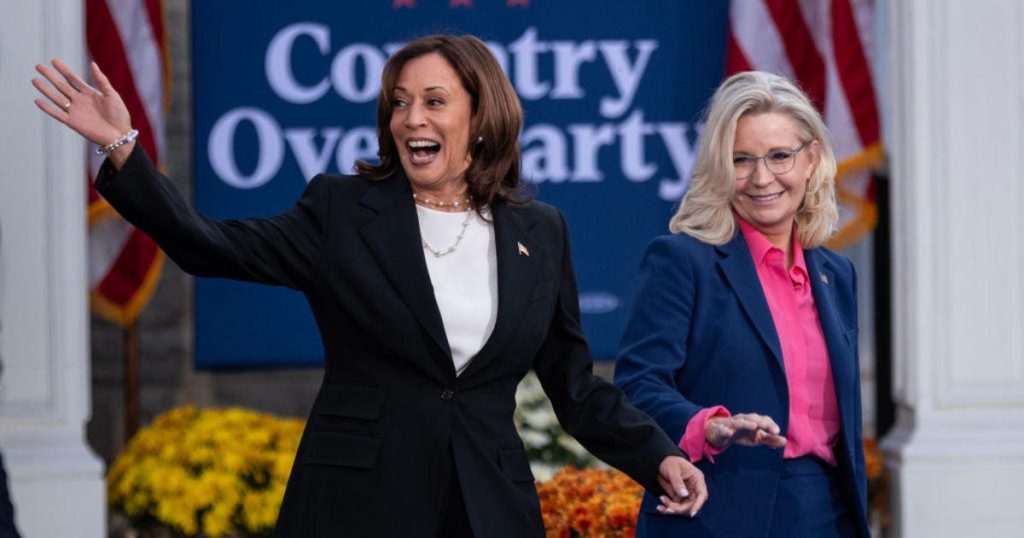Former Rep. Liz Cheney, a prominent Republican, announced her support for Vice President Kamala Harris and joined her on the campaign trail in Ripon, Wisconsin, the birthplace of the Republican Party. Despite having different policies, Cheney and Harris share a mutual dislike for former President Donald Trump and view him as a threat to democracy after the events of Jan. 6 at the U.S. Capitol. Cheney, along with her father, former Vice President Dick Cheney, publicly expressed their support for Harris, leading to a joint appearance at a campaign event where Harris praised both Cheneys for their patriotism and commitment to country over party.
Cheney, who was removed from her position as the third-highest-ranking Republican in the House after voting to impeach Trump, joined Harris on the campaign trail as part of a concerted effort by the campaign to appeal to disaffected Republicans. The campaign also launched a new ad featuring a former Trump voter who argued against Trump’s economic plan and hosted “Republicans for Harris” events across battleground states. Harris’ running mate, Minnesota Gov. Tim Walz, highlighted the diverse coalition of support that Harris has garnered, ranging from Bernie Sanders to Dick Cheney to Taylor Swift, showing optimism for a positive future of the country.
While only a small number of conservative voters are supporting Harris, moderate voters favor her over Trump by a significant margin. Several Republican officials, including Adam Kinzinger and Geoff Duncan, spoke at the Democratic National Convention and continue to support the Harris campaign. Despite some concerns from undecided voters about the genuineness of the outreach to Republicans, Harris has tried to appeal to centrists by aligning with bipartisan policies on immigration, emphasizing her pro-business stance, and reiterating her support for fracking.
The alliance between Cheney and Harris highlights the growing alliance of Republicans who are against Trump and are seeking alternatives within the Democratic Party. The endorsement from prominent Republicans like Cheney, Kinzinger, and Duncan further strengthens Harris’s outreach efforts beyond traditional Democratic support. Harris’s campaign is strategically focusing on disaffected Republicans who are turned off by Trump’s divisive rhetoric and policies, aiming to build a broad coalition of support ranging from conservatives to moderates.
As both sides intensify their efforts in the lead-up to the election, the political landscape continues to shift, with unexpected alliances forming and conventional party boundaries becoming blurred. The support from former Republican officials and voters for Harris represents a significant departure from traditional party loyalties, reflecting a growing dissatisfaction with the current political climate and a desire for change. Whether this coalition of support will translate into electoral success remains to be seen, but it underscores the evolving nature of American politics and the potential for new alliances to reshape the political landscape.


